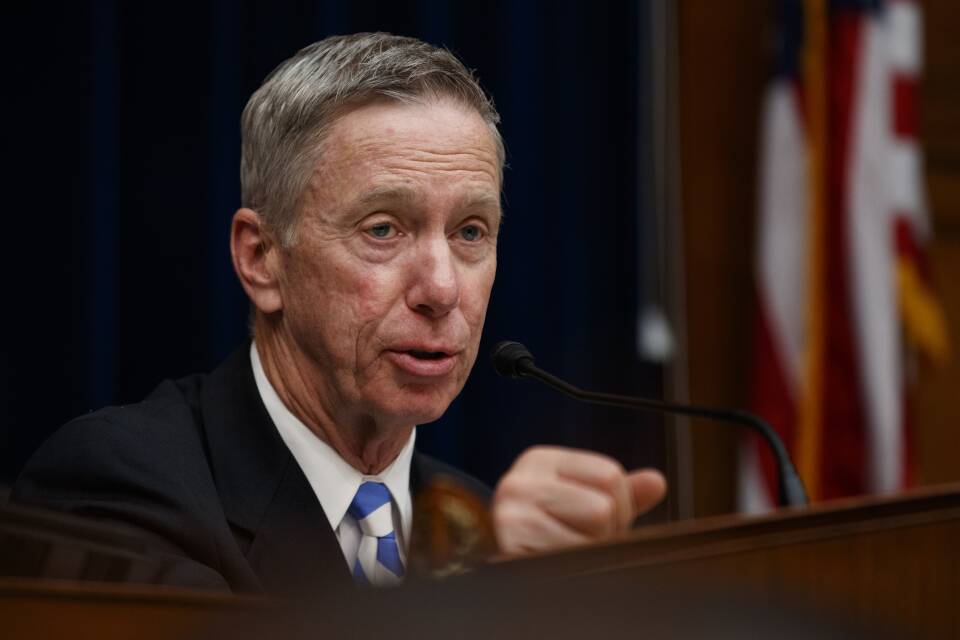A group of Beacon Hill lawmakers is resisting federal efforts to put a 10-year pause on state regulation of artificial intelligence. They warn the policy could bar them from adopting consumer protections and election integrity measures.
Fourteen Democrats who serve on the Committee on Advanced Information Technology, the Internet and Cybersecurity sent a letter to members of the Massachusetts Congressional delegation, asking them “to take all measures possible to oppose this moratorium so that Massachusetts can protect its residents.”
The spending and policy bill the U.S. House passed last month to implement President Donald Trump’s agenda features a section that would block states from enforcing their own laws or regulations around AI for a decade, with exceptions for policies that “remove legal impediments” or otherwise facilitate the adoption of AI systems.
That bill is now before the U.S. Senate.
Republicans on the Senate’s Commerce Committee advanced language this week that tweaks the AI language so that instead of a blanket ban, states would be barred from receiving federal broadband funds if they do not comply with the moratorium. Sen. Ed Markey has pledged to fight the AI provision.
State Sen. Michael Moore, who chairs the cybersecurity committee with Rep. Tricia Farley-Bouvier, said he hopes Markey will succeed. Moore told GBH News he doesn’t see much movement at the federal level toward setting guardrails around AI.
“So who is going to control or set those standards that we want AI to operate by?” the Millbury Democrat said. “Is it going to be Meta? Is it going to be Google? Who sets the standards — the industry? Is that looking out for your best interest, or their best interests?”
Federal lawmakers like Rep. Brett Guthrie, a Republican from Kentucky, say the pause is necessary to because state laws “could jeopardize our technological leadership.”
In their letter, the state lawmakers warn that leaders in the fast-growing industry could then object to future regulation of their “entrenched systems” after the 10-year window ends.
They raise questions that the moratorium could prevent Massachusetts from enforcing its recent ban on non-consensual deepfake pornography or from passing restrictions on deepfakes in campaign ads and other election-related communications.
“If this nationwide moratorium prevents the enforcement of state artificial intelligence regulations, our constituents will become test subjects as unregulated artificial intelligence and automated decision-making systems are rolled out nationwide,” the letter says.
The committee led by Moore and Farley-Bouvier is currently vetting several AI-related bills it could advance to the full House and Senate.
The bills address the use of AI in election disinformation, child sexual abuse material, health insurance coverage decisions, employee performance evaluations and other areas.
Senate members of the committee last month advanced a bill that would prohibit grocery stores from using “surveillance pricing,” the often AI-enabled practice of using shoppers’ personal data to set distinct item prices.
“It’s just such a broad and encompassing preemption, I have real concerns on what the dangers to society could be,” Moore said of the federal proposal.
Farley-Bouvier, a Pittsfield Democrat, said in a statement that a moratorium “would prevent any attempt to address long standing issues of data privacy and safety issues as they arise, no matter how limited, urgent, or necessary.”
“Harnessing the power of AI for positive growth necessitates remaining vigilant about its rapidly evolving potential to be used for harm and responding accordingly at the same pace,” she said.








